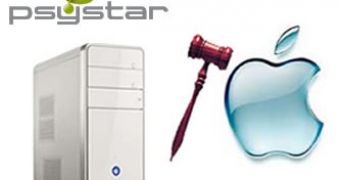World of Apple claims to have heard from its sources close with Psystar that Apple and the Mac cloner met for non-binding court-ordered mediation and, not surprisingly, didn't settle. Softpedia recently reported that a federal judge had allowed Psystar Corp. to continue its countersuit against Apple Inc., giving the Mac clone maker its first win in a seven-month-old battle with Apple.
“On February 18, 2009, the two parties in Apple v. Psystar met for non-binding court-ordered mediation,” reads the report. “I have heard from my contact with Psystar and was told that the case did not settle. Mediation conferences are often held in the very strictest of privacy, so I did not expect to be given any further details,” the author says.
Court Ordered Mediation
Mediation is a non-binding process in which a trained mediator 1) facilitates communication between disputants, and 2) assists parties in reaching a mutually acceptable resolution of all or part of their dispute. In this process, the mediator carefully explores not only the relevant evidence and law, but also the parties' underlying interests, needs and priorities. The mediator is not the decision-maker and does not resolve the dispute - the parties do. Mediation is a flexible, informal and confidential process that is less stressful than a formalized trial. (via amadorcourt.org)
Two weeks ago, Psystar filed an amended complaint saying Apple had misused copyrights by preventing Mac OS X from being run on third-party hardware. The Mac cloner's amended complaint says that there are differences between computers that are simply capable of running Mac OS X - "Mac OS Capable Computer Hardware Systems," and those built by Apple.
"The most significant competitive threat to Apple is not from a new operating system," the complaint says, "but from computer hardware systems manufacturers that may offer a competing hardware platform upon which to run the Mac OS."
Psystar also maintains all its earlier claims, such as Apple's (alleged) intentional embedding of code in Mac OS X 10.5 (Leopard) that can initiate kernel panics or infinite loops when non-Apple hardware is detected. Psystar believes that such practices are anti-competitive because they reduce the functionality of non-Apple machines to near-zero.
The latest claims also accused Apple of attempting to "obtain, maintain, and/or enjoy rights not granted by the Copyright Act," through its allegations that Psystar violates the Digital Millennium Copyright Act (DMCA). The clone manufacturer "seeks injunctions 'as is necessary' to prohibit Apple's copyright misuse (under the license and through misapplying the DMCA) as well as any additional relief the court finds appropriate. Otherwise, Apple will prevent anyone from offering real competition that uses Mac OS X," the plaintiff said.

 14 DAY TRIAL //
14 DAY TRIAL //